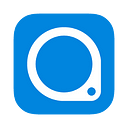UXers — Here’s a tool to set your career compass
Why is setting goals important? Because, like a compass, it is an instrument we use to orient ourselves so that we head in the right path. We align the things we do on a day-to-day basis with long-term directional milestones. Every once in a while, we recalibrate to ensure that we want to continue to invest our resources in this direction and make adjustments accordingly. To add a little more structure, members on the PlanGrid/Autodesk design team are encouraged to set OKRs (Objectives and Key Results — derived from High Output Management) on a quarterly basis. This helps us focus on a few key areas, with a measurable plan to guide us toward success.
But before goal-setting, it’s useful to work from some sort of baseline. Across different market segments, companies, and teams within a company, the skills required to deliver great user experience can vary drastically. Often, we only need to flex a subset of those skills given the circumstances and product domain we’re working with. Yet, what is required on the job may or may not directly align with our interests. The curious minds out there may even wonder if there are undiscovered skills that they can tap into.
Here’s a tool that we made!
Christiana and I created a deck of printable cards that lists out a series of skills we identified in UXers across the tech industry (inspired by Jared Spool’s article on Assessing Your Team’s UX Skills). In our career goal-setting workshop, we ask attendees to pick out six skill cards that align with their career goals. These six cards become the key skills to focus on in the near future.
Often, people feel varying levels of adeptness across these six cards. For those skills that you believe need more growth in, come up with a few actionable to-do’s to hone in on them. This might mean reading a book, picking up a new side project, or seeking advice from someone. For those skills that you feel familiar and confident with, those could be areas to mentor others in or do a talk about.
A few words of advice when using the cards:
- Know your limit and focus on a few areas of focus at a time. Let’s be honest, mastery of any skill requires some serious investment, so be practical. We ask our workshop attendees to choose six cards, but you can even cut down to 2–3 cards to concentrate your efforts.
- Write down a plan. Come up with ideas on how you might hone in on each of your areas of focus. Ideally, make them both actionable and measurable.
- Find a partner to keep you accountable. We all have a million things going on in our lives. Simply having someone with awareness might be enough to help you achieve your goal. One of my past interns asked me to have regular reading discussions with her on an interaction design book she kept putting off.
- Don’t limit yourself to these cards. The cards are intended to help you kickstart some ideas. Come up with new ones or more specific ones as you see fit.
What else can you do with these?
We originally made these cards to use as a self-reflection tool. What we quickly learned is that this deck is incredibly versatile! Not only are these cards used for personal goal setting, members on our design team from interns to senior designers have since then made creative use of the deck.
Some ideas include high-level requirements mapping for a particular project to align on project scope, insights gathering on skills when hiring for a particular team, or simply learning about other UX skills that we are less familiar with. We also had some thought-provoking conversations stem from reading through these cards together. One of my favorite was “What does it mean to be a researcher vs. product designer on the PlanGrid team?”.
We found immense value in these cards and encourage you to take a peek. If you also find them useful, we would love to know how they’re being used!

